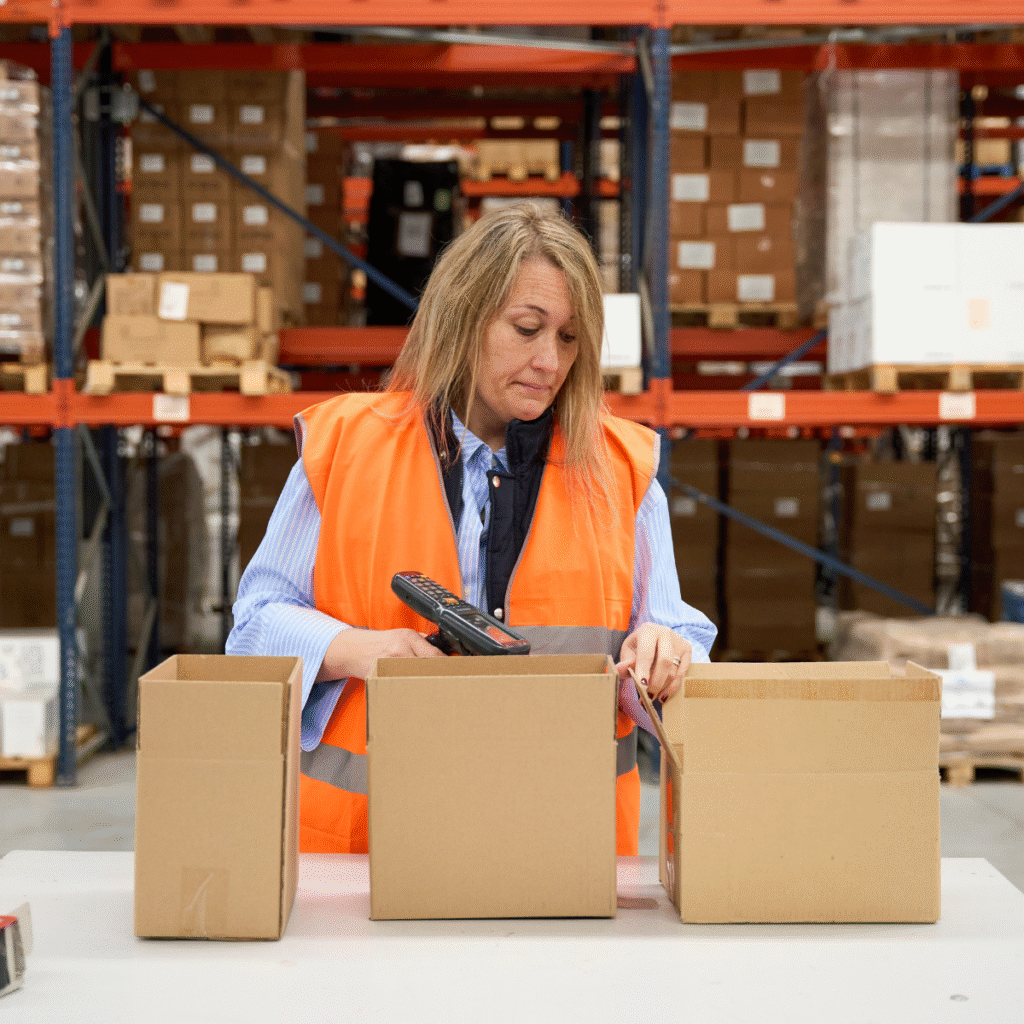5 E-Commerce Fulfilment Trends: What North West Businesses Need to Know in 2025
E-commerce is evolving faster than ever and 2025 is proving to be a landmark year for e-commerce fulfilment trends and innovation. For businesses across the North West, adapting to shifting customer expectations is no longer an option. Right now, the way products are stored, shipped, and delivered is being reshaped by powerful new trends that are setting the pace for the entire industry.
Keeping up with these shifts is crucial. Understanding and adapting to these e-commerce fulfilment trends will help your North West business not only meet customer demands but also create a more efficient and resilient operation.
1. Sustainable Logistics Becomes Standard Practice
Today’s consumers are more environmentally conscious than ever. They actively seek out brands that align with their values, and sustainability is at the top of the list. This has moved green logistics from a niche benefit to a core business expectation, especially within the progressive market of the North West.
Sustainable logistics North West businesses can embrace include offering carbon-neutral shipping options, which can be achieved through offsets or by partnering with carriers that use electric vehicles. Another key area is packaging. Switching to recyclable, compostable, or minimal packaging reduces waste and sends a powerful message to your customers. Businesses that fail to adopt these e-commerce logistics practices risk being left behind as consumers increasingly vote with their wallets.

2. The Rise of Same-Day and Hyperlocal Delivery
The demand for instant gratification is reshaping delivery expectations. Thanks to giants like Amazon, customers now see fast, and even same-day, delivery as a standard service. For e-commerce businesses in bustling areas like Manchester, Liverpool, and across the North West, offering hyperlocal delivery is becoming a key competitive differentiator.
This trend involves using local fulfilment centres to get products to customers within hours of their order. It requires precise inventory placement and optimised delivery routes. Partnering with a logistics provider who has a strong regional presence can make this complex process achievable, allowing smaller businesses to compete with larger retailers on speed and convenience.
3. AI-Driven Fulfilment and Predictive Analytics
Artificial intelligence is no longer science fiction, but rather a practical tool that is revolutionising logistics. One of the most significant e-commerce fulfilment trends for 2025 is the use of AI to create smarter, more predictive supply chains. AI algorithms can analyse vast amounts of data to forecast demand with incredible accuracy.
This allows businesses to optimise stock levels, preventing both costly overstocking and disappointing stockouts. AI also enhances warehouse efficiency by optimising picking routes and automating inventory checks. For North West businesses, leveraging AI means making smarter decisions, reducing operational costs, and ensuring products are always in the right place at the right time.
4. The Shift to Micro-Fulfilment Centres
To meet the demand for faster delivery, companies are rethinking the traditional, large, centralised warehouse model. Instead, the trend is moving towards a network of smaller, strategically located micro-fulfilment centres (MFCs). These compact warehouses are situated closer to urban population centres, enabling rapid last-mile delivery.
By decentralising inventory, businesses can significantly cut down on shipping times and costs. This is one of the key fulfilment trends North West businesses can use to their advantage. An MFC in a key regional hub can serve customers across Greater Manchester and Merseyside far more quickly than a warehouse located hundreds of miles away. This strategy is vital for implementing effective same-day delivery services.

5. Seamless Omnichannel Integration
The line between online and offline shopping continues to blur. Modern consumers expect a consistent brand experience whether they are shopping on a website, through a mobile app, or in a physical store. This requires a deeply integrated, or omnichannel, fulfilment strategy.
This means your inventory system must be unified across all channels, allowing for services like “click and collect” or returning an online order in-store. A successful omnichannel approach relies on a logistics partner who can manage inventory and orders from multiple sources seamlessly. This integration is one of the most critical e-commerce fulfilment trends 2025 will bring to the forefront, as it directly impacts customer satisfaction and loyalty.
Preparing Your Business for the Future of Fulfilment
The e-commerce fulfilment trends shaping 2025 are already in motion, and businesses across the North West must adapt to stay competitive. From embracing sustainability to leveraging AI and localising fulfilment, these changes offer exciting opportunities for growth.
Partnering with a forward-thinking logistics expert like IN1 can help you navigate these trends and implement the strategies needed to stay ahead of competitors. By embracing innovation, you can build a more efficient, resilient, and customer-focused fulfilment operation.
Ready to get your business ahead of the curve? Contact IN1 today to learn how our solutions can help you master the latest e-commerce fulfilment trends.
